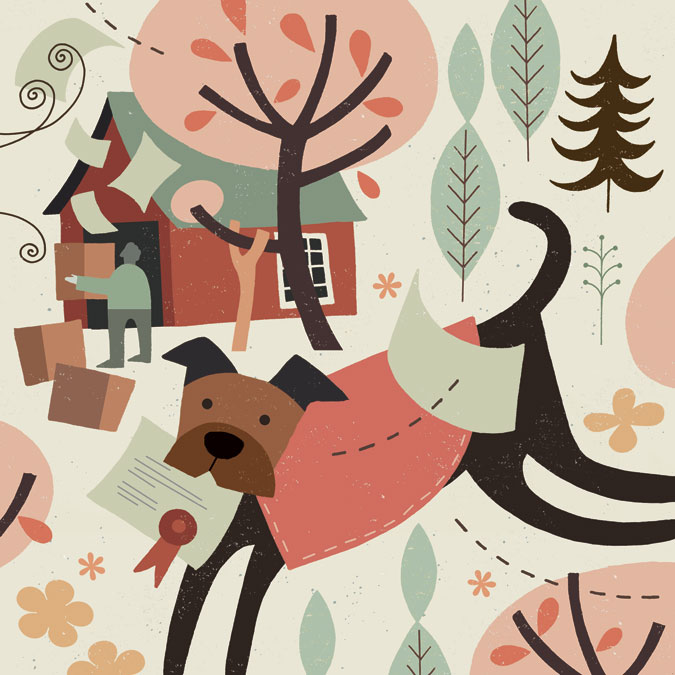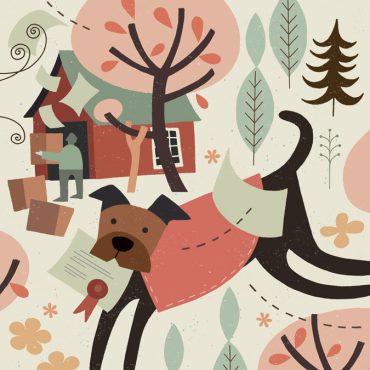Magazine
Mary’s Farm | The Things We Keep
Last year, I accomplished something I didn’t think possible: I cleaned out my barn. Rolling open the big doors revealed a great hodgepodge of objects from the past, files from stories I’d written over the years, family papers, and things I think I might need or might fix someday. Lacking a compelling reason, one can […]

Photo Credit : Tracy Farmer/i2iart, Inc.
 Last year, I accomplished something I didn’t think possible: I cleaned out my barn. Rolling open the big doors revealed a great hodgepodge of objects from the past, files from stories I’d written over the years, family papers, and things I think I might need or might fix someday. Lacking a compelling reason, one can let all this lie, like the sleeping dog. There was a party coming up, however, and we had to use the barn. I’d kept putting off the great purge–until one soft, warm June morning, I put on an old sweatshirt, rugged shoes, and gloves and rolled open those forbidding doors. I’d asked John, who had done some good work for me in the past, to help in this process. He actually looked delighted.
I began with the boxes filled with papers. I sat on a milk crate in the light of the barn’s one south window, sunshine illuminating the pages before me. Each box sent me into reverie. So many other times, so many other places. Could I really have lived this long? As I opened the cartons at random, it was like watching my life pass before me. Photos of my parents holding my little hand at the beach. Photos of me and my college roommates lounging in our eclectically furnished, flower-child dorm room. Letters from old boyfriends. I found diplomas with the corners chewed by mice. (Why would I need those at this point in my life?) Photos of myself and my first husband building our first house. A file marked “divorce papers.” (I didn’t think I still had them.) Boxes and boxes of files from stories I’d written over the years. Spiral notebooks filled with notes, phone numbers, names now forgotten. Trunks of old clothes. I sorted and sorted.
It wasn’t so much a physical task, though it required some muscle, but instead, a work of the heart. To be kept was the three-piece bobsled, who knows how old, which my father cleaned up and painted red and gave to me the year I moved to New Hampshire; my grandfather’s surfboard, procured on a trip to Hawaii in the 1930s; and the Singer treadle sewing machine in good running condition (always living with one eye on the apocalypse). But then there were those pink monogrammed towels my mother bought for me, which I never used. The sweater my long-gone grandmother knitted for me but that never fit. This kind of gift causes paralysis in me; I can’t give it away or send it to the rummage sale, or, heavens, throw it away. Something in me won’t allow that. And so it all piles up: things I don’t want or need, but things that nevertheless carry with them a deep well of emotion. Perhaps what I’m trying to keep is the memory of the love and generosity these people brought me when they were alive.
It seemed an impossible task. But not for John. “What are you going to do with this?” he’d ask, holding up some clearly dilapidated item. I began to see through his eyes.
There was a lot of carnage and many trips to the dump and the church rummage, but in the end, I saw the walls and floor of the barn for the first time since I’ve lived here. At the end, John looked around and asked me, “So what are you going to do with this now?”–as if we’d actually created something new. I’m sure he didn’t want to hear my answer, which was: “Probably start filling it up again.”
Edie Clark reads selections from her “Mary’s Farm” essays on her recently released CD, Night Sky. Order your copy, as well as Edie’s books, at: new.YankeeMagazine.com/store or edieclark.com
Last year, I accomplished something I didn’t think possible: I cleaned out my barn. Rolling open the big doors revealed a great hodgepodge of objects from the past, files from stories I’d written over the years, family papers, and things I think I might need or might fix someday. Lacking a compelling reason, one can let all this lie, like the sleeping dog. There was a party coming up, however, and we had to use the barn. I’d kept putting off the great purge–until one soft, warm June morning, I put on an old sweatshirt, rugged shoes, and gloves and rolled open those forbidding doors. I’d asked John, who had done some good work for me in the past, to help in this process. He actually looked delighted.
I began with the boxes filled with papers. I sat on a milk crate in the light of the barn’s one south window, sunshine illuminating the pages before me. Each box sent me into reverie. So many other times, so many other places. Could I really have lived this long? As I opened the cartons at random, it was like watching my life pass before me. Photos of my parents holding my little hand at the beach. Photos of me and my college roommates lounging in our eclectically furnished, flower-child dorm room. Letters from old boyfriends. I found diplomas with the corners chewed by mice. (Why would I need those at this point in my life?) Photos of myself and my first husband building our first house. A file marked “divorce papers.” (I didn’t think I still had them.) Boxes and boxes of files from stories I’d written over the years. Spiral notebooks filled with notes, phone numbers, names now forgotten. Trunks of old clothes. I sorted and sorted.
It wasn’t so much a physical task, though it required some muscle, but instead, a work of the heart. To be kept was the three-piece bobsled, who knows how old, which my father cleaned up and painted red and gave to me the year I moved to New Hampshire; my grandfather’s surfboard, procured on a trip to Hawaii in the 1930s; and the Singer treadle sewing machine in good running condition (always living with one eye on the apocalypse). But then there were those pink monogrammed towels my mother bought for me, which I never used. The sweater my long-gone grandmother knitted for me but that never fit. This kind of gift causes paralysis in me; I can’t give it away or send it to the rummage sale, or, heavens, throw it away. Something in me won’t allow that. And so it all piles up: things I don’t want or need, but things that nevertheless carry with them a deep well of emotion. Perhaps what I’m trying to keep is the memory of the love and generosity these people brought me when they were alive.
It seemed an impossible task. But not for John. “What are you going to do with this?” he’d ask, holding up some clearly dilapidated item. I began to see through his eyes.
There was a lot of carnage and many trips to the dump and the church rummage, but in the end, I saw the walls and floor of the barn for the first time since I’ve lived here. At the end, John looked around and asked me, “So what are you going to do with this now?”–as if we’d actually created something new. I’m sure he didn’t want to hear my answer, which was: “Probably start filling it up again.”
Edie Clark reads selections from her “Mary’s Farm” essays on her recently released CD, Night Sky. Order your copy, as well as Edie’s books, at: new.YankeeMagazine.com/store or edieclark.com

